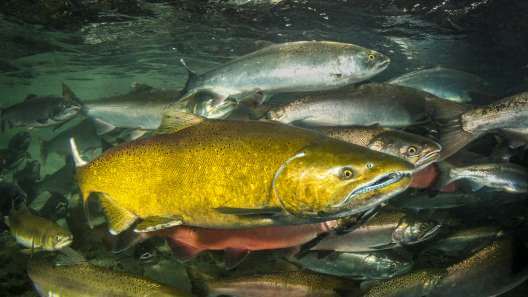Open-net pen transition plan in British Columbia
Parliamentary Roundtable Report
Open-net pen transition plan in British Columbia: initial engagement process
Today, Oceans and Fisheries Canada released an interim report on the engagement of British Columbians around open net pen aquaculture. The Pacific Salmon Foundation has played a central role, working with partners, in advancing research related to the impacts of open net pen aquaculture on the health of Pacific salmon.
We continue to fully support the federal government’s commitment to work with the province of British Columbia and Indigenous communities to create a responsible plan to transition from open net-pen salmon farming in coastal British Columbia waters by 2025. We commend Terry Beech, Parliamentary Secretary for the Department of Oceans and Fisheries for his leadership and collaboration with Fin Donnelly, Parliamentary Secretary for Fisheries and Aquaculture in B.C.
Based on the evidence, our science-informed position supports the urgent need to transition away from open-net-pen aquaculture for the health of Pacific salmon. The evidence shows that open net pen fish farms pose a substantial risk to wild Pacific salmon.
In a recent poll, we saw that 86% of British Columbians are concerned with the declines of Pacific salmon and 75% believe that open net pen salmon farms need to be transitioned to land based.
Every open net pen site in B.C. is on a migratory pathway for our wild Pacific Salmon and many of these stocks are in decline. This places wild salmon at continued risk when the state of salmon has never been at such a high level of concern for their future health.
Our work remains focused on coordinated action for the sustainability of Pacific salmon and we look forward to continued development of the open net pen aquaculture transition plan as we believe it’s essential to urgently remove risk factors in our control in order to advance recovery.
Michael Meneer
President & CEO
Pacific Salmon Foundation



 James MacDonald Photograhy
James MacDonald Photograhy